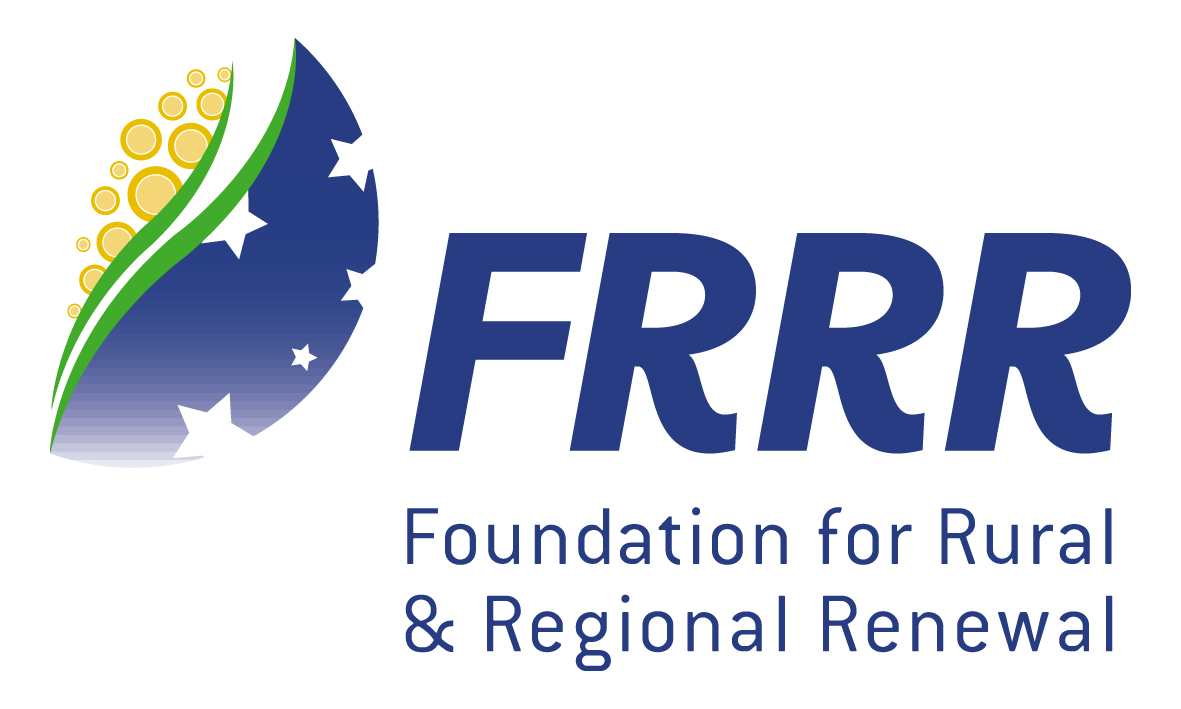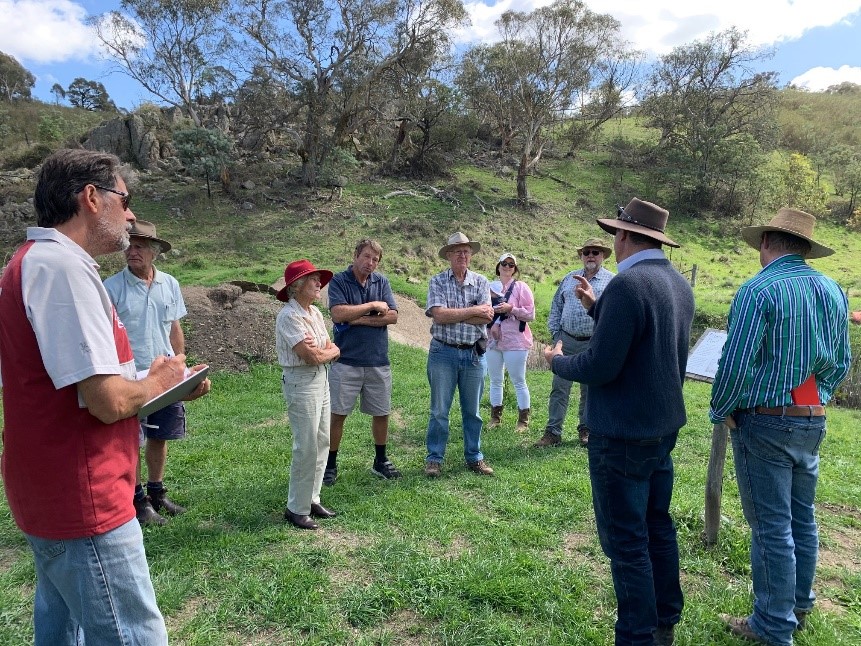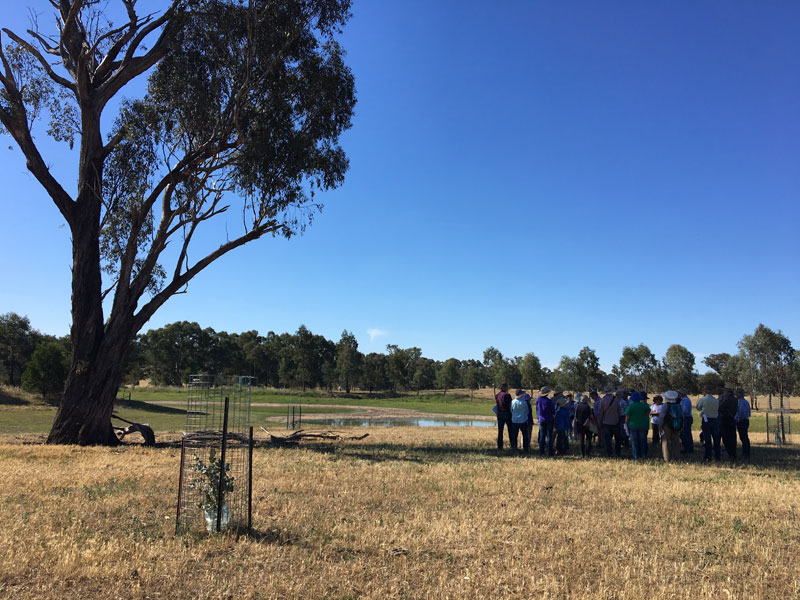Project Summary
Project Details


Thanks to funding from the Foundation for Regional Renewal under the Tackling the Tough Times Together program, and its donor partner Stockland CARE Foundation, HCLG was able to run six workshops for members during 2019 on strategies for managing during times of drought. The aims of the program were to provide helpful information, reduce social isolation by bringing people together and reduce volunteer fatigue by funding a co-ordinator to run the workshops.
We hosted experts speaking on topics ranging from how to navigate through managing mental health to the latest research on decision-support tools to help manage through the current drought and plan for future droughts.
The workshops were well attended and provided good support and information for members.
The details of the workshops were as follows:
- 16 August 2019 - HCLG co-sponsored the Boorowa Community Landcare Group symposium on 'Resilient Farming Communities - Planning for Climate Uncertainty' in Boorowa. John Harper talked about 'mates helping mates' in difficult times. Participants took home tips and strategies for engaging in safe, trustworthy, and collaborative interactions which minimise stress, de-escalate challenging situations and enable recovery.
- 30 August 2019 - HCLG 'Managing Dry Times' workshop at Frogmore
The theme of the workshop was exploring current and future strategies to manage climate variability into the future. The speakers were:
- Professor Mark Howden, Director of the Climate Change Institute at ANU, who gave an overview presentation on climate change
- Phil Graham, Technical Specialist Livestock Systems at DPI who spoke on the implications of climate change for pasture growth and animal production and
- Dr Melinda Hillery, NSW Government Climate Change Adaptation regional team member, DPIE, who spoke on the implications of climate change for our community, including floods, drought, community infrastructure.
A link to a Powerpoint summary of the presentations can be found below.
- 13 February 2020 - Laura Rayner talked to the HCLG members’ meeting about the implications of climate change on the welfare and distribution of the Superb Parrot.
- 27 February 2020 - Visit to Mulloon to talk about rehydrating catchments
The Mulloon Institute in Bungendore is a research, education and advocacy organisation that demonstrates on-ground regenerative agriculture practices for sustainable and resilient environments. The visit was hosted by Landscape Rehydration Project Coordinator, Peter Hazell, who explained the background and work of the institute. The day included an inspection of the work done on the property.

Members at the Mulloon Institute visit
- 13 March - the second HCLG 'Managing Dry Times' workshop at Frogmore
The speakers included:
- Geoff Casburn, Livestock development officer at NSW DPI, who demonstrated the Drought and Supplementary Feed Calculator App and Web Application, the next generation of the Drought Feed Calculator;
- Matt Lieschke, Senior Agricultural Advisor, Local Land Services, who spoke on how soil moisture data and modelled pasture projections can help producers in their decision making at critical stages of the season; and the pros and cons of confinement feeding (“drought lots”) as a drought management tool;
- Dr Nola Hancock, post-doctoral researcher at Macquarie University, who spoke on revegetation practice in relation to climate change;
- Richard Hayes, Senior Research Scientist at DPI who spoke on the role of perennial-based pastures in providing groundcover, using episodic rainfall and growing year-round forage for livestock. He provided a summary of the most viable species presently available for long-term pastures and some tips about improving establishment following drought.
- Dr Susan Orgill, Soil Scientist with DPI, who spoke on how management practices influence carbon cycling on farms and the major drivers for increasing soil carbon.
A link to a Powerpoint summary of the three presentations can be found below.

‘Managing the Dry Times’ presenters from L to R: Geoff Casburn, Dr Susan Orgill, Dr Nola Hancock, Richard Hayes and Matt Lieschke
- 26 September 2020. The final forum was the September 2020 HCLG members’ meeting where the topic for discussion was how everyone has coped with the drought. Members discussed strategies they used and how well they worked.
Advice/lessons learned by members included:
- Don’t plant trees in Spring during drought. Plant in April to June
- Tree planting works best during drought (and other times) if assisted with water crystals and seasol
- Agriform fertiliser tablets are an alternative to seasol and can be put in with each tree planted
- Clean out dams during drought in preparation for rain
- Consider destocking earlier rather than later – feeding can be very expensive
- Overstocking was a problem for many. Some felt that the DPI definition of DSE was inadequate and only about 60% of the recommended DSE should be considered during drought
- If rotating stock to rest paddocks for 90 days, 60 days feed left is a trigger for destocking
- Some had sacrificial paddocks where they kept most of the stock
- Destocking paddocks with gullies helped to maintain groundcover, reduce erosion and maintain water clarity in the gullies
Resources
Mark Howden presentation at first FRRR workshop August 2019
Phil Graham presentation 30th August 2019
Melinda Hillery presentation Aug 30th 2019
Susan Orgill presentation March 13th 2020
Richard Hayes presentation March 13th 2020
Matt Lieschke presentation 1 March 13th 2020
Matt Lieschke presentation 2 March 13th 2020
Nola Hancock presentation March 13th 2020
Managing Dry Times Media Article
Geoff Casburn's presentation of Drought & Supplementary feeding App


